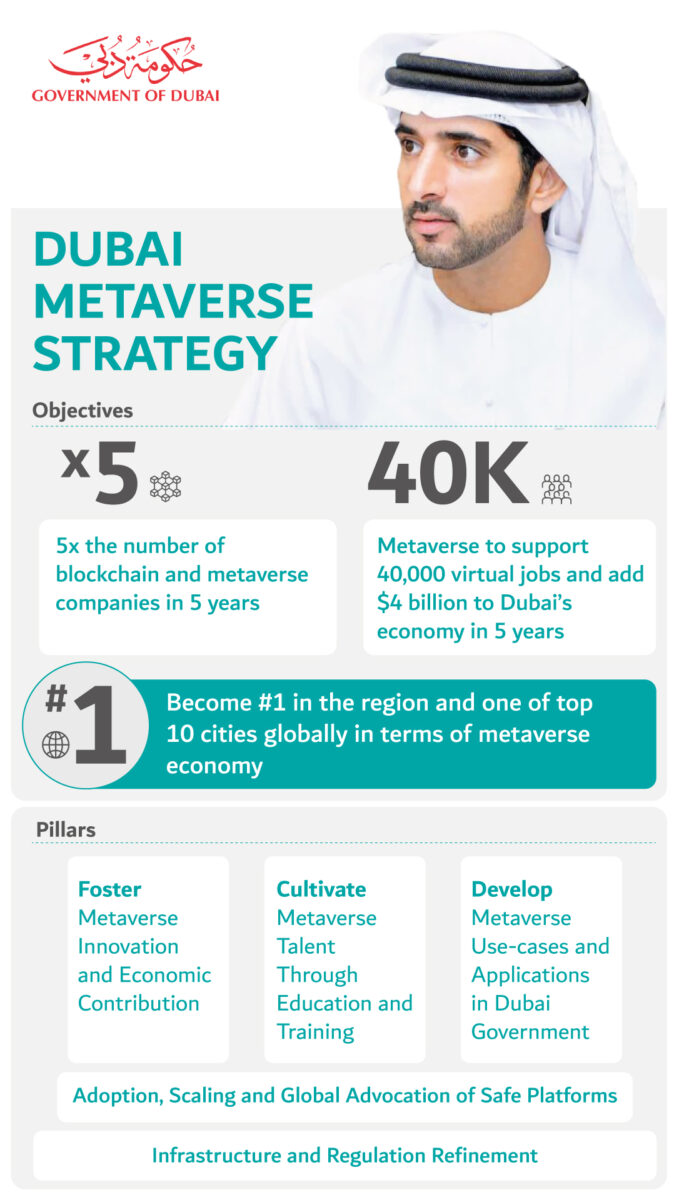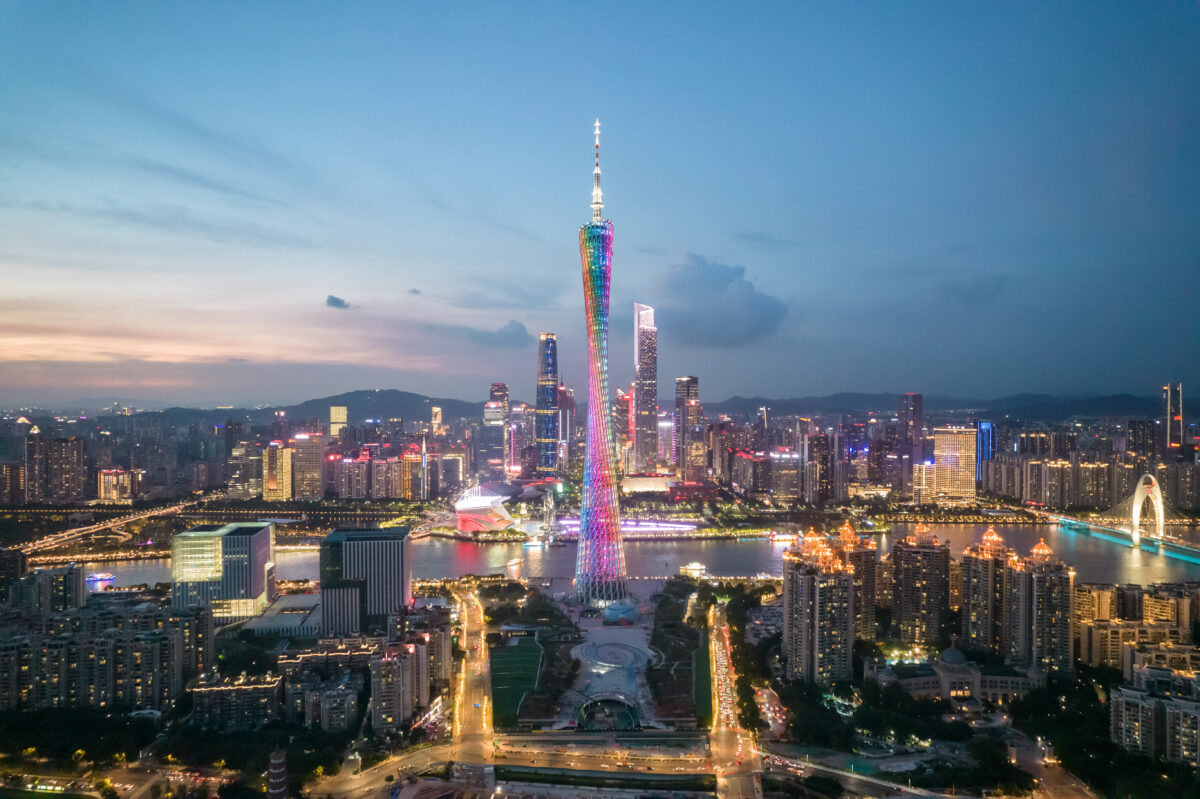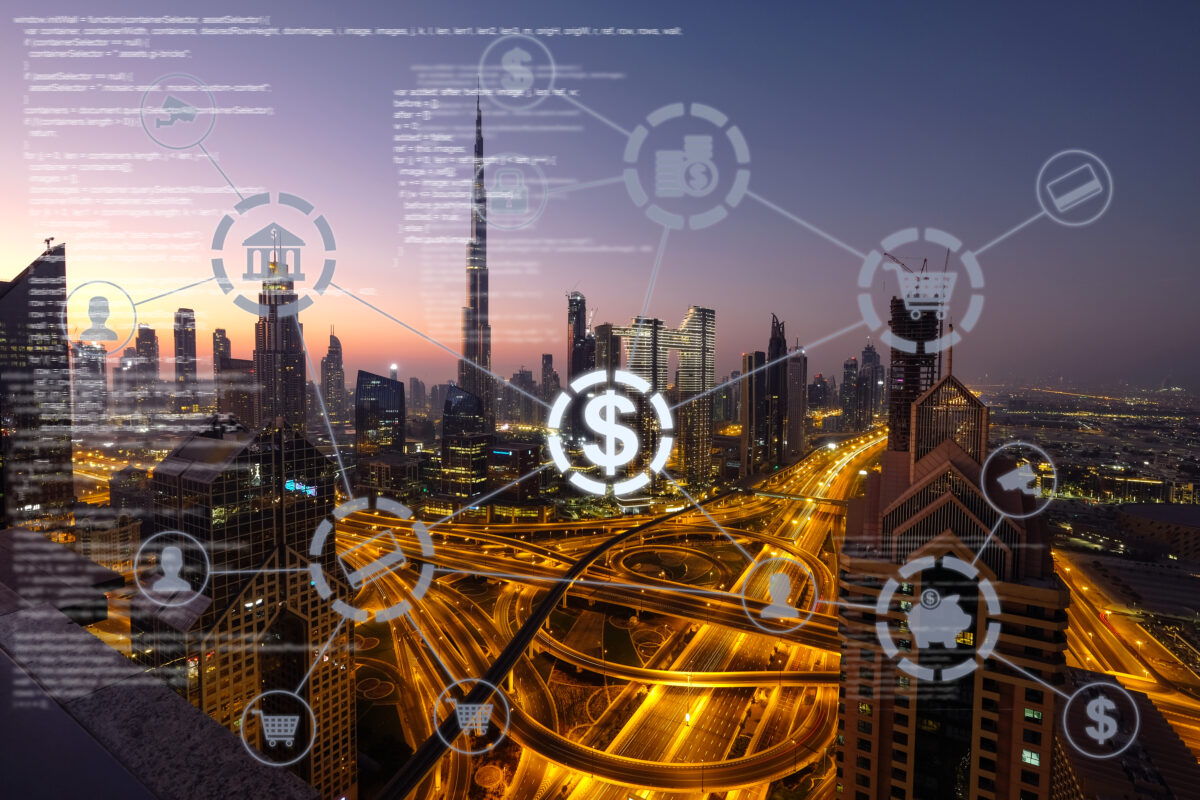While the topic of the metaverse is still new for all, there are some countries in the world that are starting to get their heads around it. In fact, there are cities that are already aiming to attract and foster the metaverse, with the ultimate aim of being a global hub for it.
It is estimated that the metaverse will have a quarter of people working, studying, shopping and socialising for at least an hour a day by 2026. Additionally, around 30 per cent of the world’s organisations are projected to have metaverse products and services by then as well. Other stats, such as some from Citi, estimate that the direct metaverse-related economy could be around $13trillion – where it can impact not just tech players but also the likes of cryptocurrencies.
Economic development, should future predictions be correct, with a specific focus on digital economic development – would be a benefit for any jurisdiction looking to be a global metaverse hub. In particular, as a growth in job creation (whether in person or virtual), increase in startups and foreign direct investment (FDI), and an increase in international trade can further lead to economic growth. Also, both directly and indirectly, with the rise of the likes of fintech and edtech and the former’s subsectors like gametech and digital currencies, would jointly continue to grow and see the metaverse be a strong enabler of it.
Much of the innovation of the metaverse will of course mainly come from global tech hubs such as London or Silicon Valley, which for instance Meta (owner of Facebook)’s Mark Zuckerburg helped popularised the term and idea, as they are major global tech and innovation hubs at present anyways.
Despite its development being in its early stages, there are cities across the world that are already embracing the metaverse (whereby there is organic private sector interest and developments) and also aiming (from a government strategic level) to be future global metaverse hubs.
Shanghai
The largest city in China by population, and the biggest financial and commercial hub, on the 8th July released a policy paper that aimed for it to become ‘the’ global leader in metaverse technology.
The same policy paper highlighted that it will grow to become an over $50billion industry by 2025. Shanghai also aims to attract over 1,000 blockchain, crypto and metaverse companies as well as supporting over 40,000 virtual jobs by 2030. The city also will aim to see Shanghai accelerate its efforts in research and development (R&D) of virtual reality platforms.
As early as late last year, it was reported that Shanghai intended to double down its support for metaverse platforms, as it included it in its policy document that was out at the time. Shanghai has been a major player in China and is reported as the epicentre for China’s central bank digital currency (CBDC) rollout and other blockchain adoption trials.
To note, on the 15th July, Shanghai released its digital economy development plan during the 14th Five Year Plan era, further showing its dedication to accelerating its digital economic development.
Dubai

The Middle East city aims to also be a global metaverse hub. Launched only last month in July, the Dubai Metaverse Strategy aims to turn Dubai into one of the world’s top 10 metaverse economies as well as a global hub for the metaverse community. The strategy aims to build on Dubai’s achievement of attracting more than 1,000 companies in the fields of blockchain and metaverse. It also promotes Dubai’s ambitions to support more than 40,000 virtual jobs by 2030.
According to the Dubai government’s website, The strategy’s key pillars focus on:
- Extended reality (which blends the physical and virtual worlds)
- Augmented reality (AR)
- Virtual reality (VR)
- Mixed reality
- Digital twins (a virtual representation of an object or system)
Dubai and the UAE as a whole, have also seen themselves transform to being not only a major regional hub in the Middle East and Africa (MEA) region, but a major contender globally with hubs. Its own digital transformation and digital friendly ecosystem has made it the leading player in not only the Arab World, but also a major one globally.
Guangzhou

Another Chinese city – the southern city of Guangzhou which has morphed into a major global city in a short amount of time – is also vying to be a major metaverse hub. The Nansha district in the city has established a metaverse industry zone and enacted nine measures to boost local metaverse development in terms of human capital, R&D, and technology advancement. Notably, they include financial support as high as almost $30million ($29.6million) for metaverse platforms with “key technological innovation effects,” in addition to rent exemption for as long as three years for small and medium enterprises (SMEs).
Guangzhou is also planning to host the first “Bay Area Metaverse Digital Art Festival” that features the following stages: digital art and design contest, digital art exhibition and digital art urban carnival. In addition, Guangzhou aims to establish the world’s first metaverse arbitration agency, with the Guangzhou Arbitration Commission entering in agreement with the Zhuhai Yuanbang Technology Company.
Time will tell but Shanghai and Guangzhou in China, and Dubai in the UAE are aiming to use the metaverse to create jobs and economic growth.
Image and article originally from thefintechtimes.com. Read the original article here.

